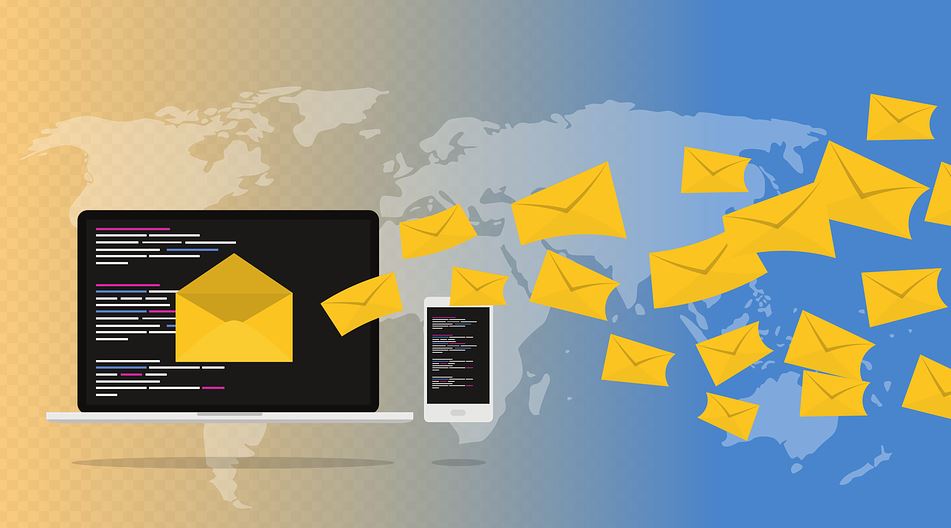Email remains the most reliable way to send important messages online. Not only has it been around for decades, but it works well even with the newest technology. It’s more than possible to send long-form messages on a mobile phone, for example. While chat apps are email’s closest competition, trying to have a complicated discussion over a series of disjointed chat messages rarely conveys the intended meaning well, so most people will still use email when the message is important. Express mail letter is also a popular and effective way of conveying information to people.

This article focuses on the best way to communicate with mobile users.
Email is Evolving
While the technology behind email hasn’t changed that much, the front-end implementations have changed for the better. Webmail apps like Gmail have begun segmenting emails by category, so marketing messages fall under one tab and other emails under others. Gmail also has a Priority Inbox for the most important messages. Some people prefer this approach, whereas others dislike it – the feature can be disabled in the Settings under the Gear symbol if required.
Email Gets Through When Calls Won’t Connect
While communication apps are quick to point out that they shouldn’t replace the ability to call from a landline for emergency services, sometimes networks get too busy and outgoing (and incoming) calls won’t connect. At times like these, a simple email over a 3G or 4G LTE cellular connection will often still work and get through sooner with far greater reliability.
Email Marketing Messages Are Useful to Interested Consumers
Whether you want to keep up with details about the latest Apple products or Android Pie (which integrates AI in interesting ways), opting in to an email newsletter gives permission for the company to regularly contact you. Whenever a company has useful new articles covering topics you’ll find of interest, or new products, they can simply send out a mass email.
This type of email marketing works to the benefit of both the company and the end-user. You, the user, get to hear about the news and information that matters to you and the company has the ability to reach out to you; a single visit to their website doesn’t give them the ability to do so otherwise. It’s a win-win for both parties.
Why Email Deliverability is Important
Being able to receive an email when you’ve asked to be on a mailing list should be straightforward, however, this doesn’t always happen. When a marketing message gets either redirected to your spam folder or blocked by the mailing list provider and never gets sent out, it prevents you from receiving it. This means you don’t hear about the latest product release, software patch, or other important snippets of information that would have been helpful.
The subject of what email deliverability best practices are is a complicated one, but it matters because when not following them, emails fail to arrive as you’d expect them to.
What Matters Most to Ensure Email Deliverability?
Email deliverability is affected significantly when emails are marked as junk mail (whether incorrectly or unfairly). Email addresses also get bought and sold, with emails being sent to unsuspecting account holders. All the above can have an impact on future deliverability.
You should expect to occasionally be asked by a company whether you still wish to receive their emails or not. This usually happens because you haven’t opened their email newsletters in a few months and they’re wondering if you still want them.
Sometimes, people forget they even subscribed months or years ago to an email list and mark their emails as “spam”. This hurts the future deliverability of marketing emails from the company, so to avoid this, it’s best that they check periodically to confirm with you.
While we’ve explained how some emails are unfairly marked as spam and are then blocked from arriving in your inbox, it’s important to watch out for pre-sold email lists. Sometimes, a company will buy an email list of people interested in a certain topic. These are sold by other companies. This is bad practice and makes life harder for everyone. If you genuinely do not know the company that is emailing you, unsubscribe from their emails.
You have the option with most email and online webmail apps to mark the email as “spam” if you choose. However, to ensure future deliverability for other people, be sure that you’re being fair and that you didn’t opt into the newsletter in the first place.
Conclusion
Email is used to keep in touch with friends and family, as well as to let companies contact us with marketing messages or to confirm online orders that we’ve placed. However, despite the many ways email has improved over the years, there still isn’t a safe way to avoid harming deliverability when labeling messages as spam. Hopefully, this article has helped to explain why deliverability is important and how to avoid harming a company unnecessarily.

